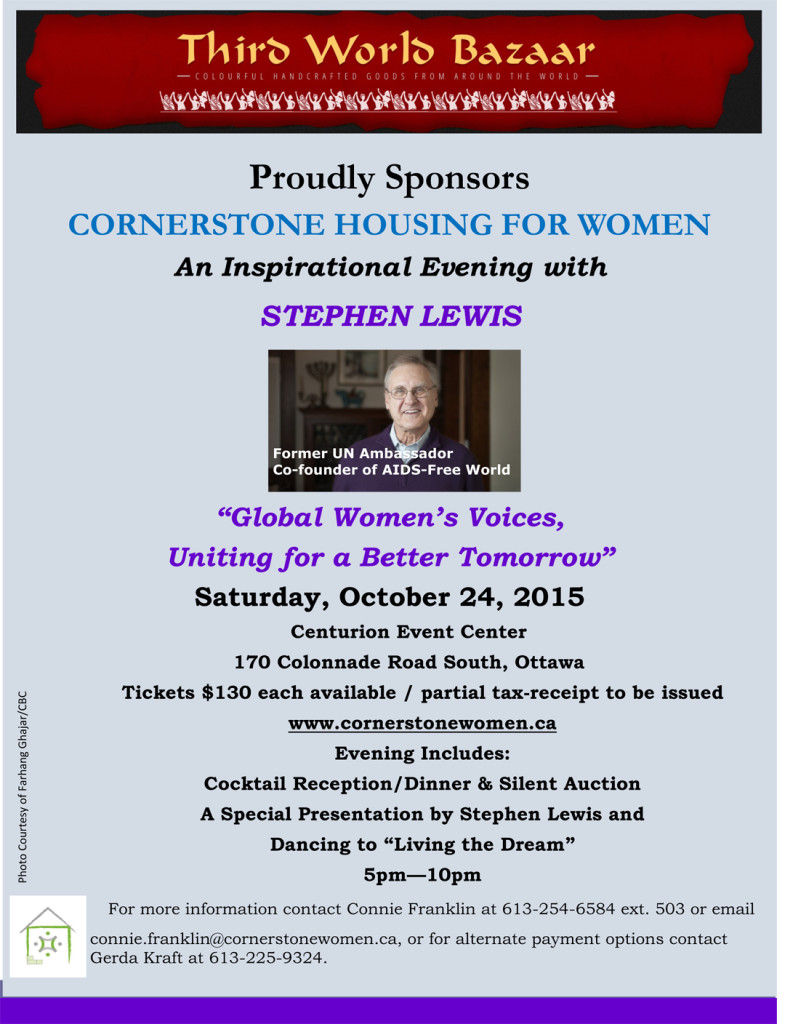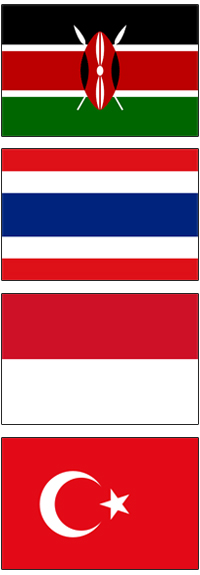 Our 2018 buying trip provided us with a new destination – Kenya; the land of wide savannas, game parks, safaris and Nairobi traffic. Our trip was to be an exploratory visit; spend some time with friends after the busy buying of Indonesia, Thailand and Turkey, and maybe some small purchases. It was not to be!
Our 2018 buying trip provided us with a new destination – Kenya; the land of wide savannas, game parks, safaris and Nairobi traffic. Our trip was to be an exploratory visit; spend some time with friends after the busy buying of Indonesia, Thailand and Turkey, and maybe some small purchases. It was not to be!
On arrival, it was shocking how quickly we were drawn to the warmth and enterprise of the Kenyan people. We were not expecting everyone to be so friendly and accommodating. Security and traffic issues were never an issue. And surprisingly, the countryside was much cleaner than we had expected. In 2017, Kenya banded plastic bags and the people were enthusiastically changing their habits. Everyone (we talked to) was happy about the change – they all said ‘something has to be done to clean up the country… we were fed up with the garbage’.
We have decided to purchase a large number of the new re-useable Kenyan shopping bags for the Bazaar. We hope you will appreciate them, and make use of the bags many times.
The craftsmanship of Kenya is very strong. We were thrilled to quickly find wonderful craftsmen and women to provide beautiful carvings, Christmas decorations, clay jewelry and Massai blankets. We also met with Ocean Sole ( www.oceansole.co.ke ), a social enterprise that collects old flip-flops along the coast and recycles them into colourful African animal carvings. (Yes, there is an unlimited number of old rubber flip-flops.) We are confident that our customers will be very impressed with the variety of crafts offered by Kenya.
And of course Kenya also has a wonderful Game Park system with incredible wildlife. We were thrilled to experience the wonders of the Maasai-Mara and Laipikia countryside. Kenya had much more to offer than we had expected; friendly people, spectacular wildlife, incredible scenery and wonderful product.
]]>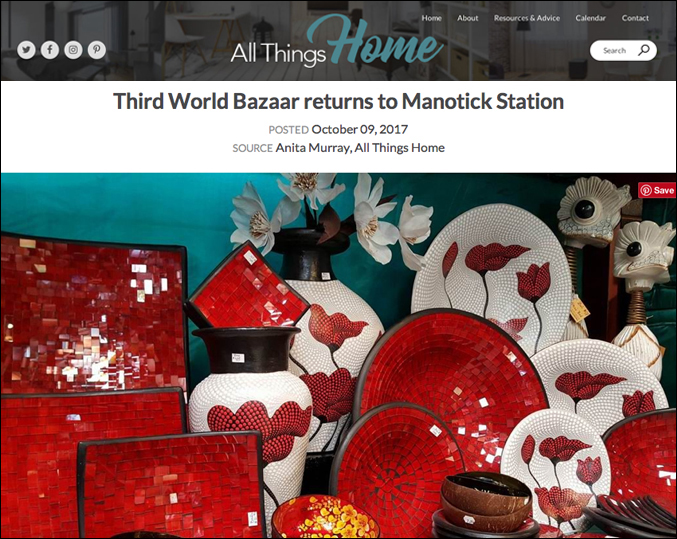
We had the pleasure of having Anita Murray the co-founder of All Things Home Inc. visit the Bazaar on September 9th. Read her review by clicking here . Thanks Anita for visiting and for your lovely article! Hope to see you next year!
]]>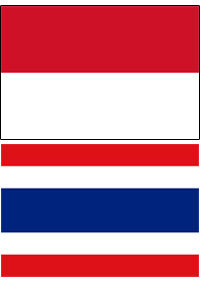 This year we brought our two key staff on our Asian buying trip, Brenda Cavacciuti (our Display Specialist) and Jordan Horlin (Jewelry Room Manager). Their observations are below.
This year we brought our two key staff on our Asian buying trip, Brenda Cavacciuti (our Display Specialist) and Jordan Horlin (Jewelry Room Manager). Their observations are below.
A Buddha is no longer just a Buddha. After going to Bangkok and Bali this winter to join the Bakker’s on their annual buying trip, I have returned a person who appreciates the traditions of this part of the world.
I feel the experience has opened my eyes to so many things. The Bakker’s work hard to buy from many different artists and businesses. It was so interesting to help and watch this process. Travelling the countryside for many hours meeting artisans in different villages, each with their own specialty products.
I especially enjoyed helping select the mosaic product. There were so many beautiful colours to choose from it was hard for me to come up with the final five patterns but I think you will like what I chose. If not, I guess I will get to buy it all. Ha, Ha…
It was a long way to travel but I appreciated the opportunity to be part of the buying team. It made me understand all the work that goes into making, buying and shipping the product. I hope to show some of that appreciation while displaying the barn this season.
Brenda Cavacciuti
The Jewelry Opportunity of a Lifetime!
For eight years I have worked at The Third World Bazaar overseeing the jewelry room.
To say that this position is a good fit for my passion and love of silver jewelry, gem stones and anything else exotic is an understatement.
This year I was fortunate enough to accompany the Bakker’s on their annual buying trip to East Asia. My mission was to scope out new jewelry and do the buying for this year’s Third World Bazaar.
I’ve always understood that Bali and Thailand are highly regarded as having some of the world’s best gold and siilversmiths. The level of workmanship and pure artistry is second to none anywhere in the world. The diversity of the beautiful jewelry to be found here is so great and this is exactly what I had the pleasure to discover myself… pinch me now…..
Bangkok was our first stop and it was an explosion and feast for every sense… Life on the streets, people from every corner of the world, culture everywhere; the city is an incredible experience to discover. Being greeted with fresh juice and a cool jasmine scented face cloth inspired me on my hunt for all things jewelry.
Jewelry from Thailand is well priced and provided me with a selection of great earrings and rings, bangles and bracelets…. My favorite find was the Silver Wrap. You can wear as a lovely necklace or wrap it around your wrist 4 or 5 times for a stunning silver wrap bracelet. Super fun and classy which you can wear on your wrist 24/7 and not even know it’s there.
We then travelled to the tranquility of Bali, Indonesia where my search for all things jewelry continued. In Bali you are greeted with open hears, warm smiles, and a deep sense of spirituality. Their oneness of culture and everyday living was beyond inspiring.
The jewelry here was a feast for my eyes. The silver work is more intricate and their use of beautiful gem stones is beyond gorgeous. I invite you to come and see for yourself the fine work that is produced by the silver artisans of Bali. Life, religion and art all converge in Bali. To experience this country was very special and I will never forget my time there.
Jordan Horlin
]]>
 In 2016 we did a special trip to Mexico. Peggy and Dick had travelled to Mexico 35 years ago, and Peggy has been doing some quick buying trips over the past 4 years.
In 2016 we did a special trip to Mexico. Peggy and Dick had travelled to Mexico 35 years ago, and Peggy has been doing some quick buying trips over the past 4 years.
This time they went together and were able to visit three very different regions; Guadalajara (for our buying), Baja California (kayaking with good friends) and Mexico City (for a short holiday).
The country has certainly changed since 1981; busier for sure, but everywhere the Mexicans are still incredibly friendly and helpful. We were struck by how many people, in each busy airport, were eager to guide us to our destination. The slightest indication of confusion brought airport staff and Mexican travelers to our assistance; always with a smile and a guiding hand.
Mexico has had a lot of bad publicity the last few years, but our experience was nothing but great. Each city we visited had wonderful public art throughout the downtown area, and Mexico City has the best bicycling infrastructure we have ever seen! This is certainly an example of international media exposure about crime and pollution overshadowing the other realities of hospitality, thoughtful development and decency. Mexico was a wonderful and pleasant surprise.
Our Guadalajara glass producer gave us a great tour of how the product is made. Our supplier uses recycled tequila bottles for all of their glass production. These bottles are crushed down into a form that can be fired in the extremely hot ovens, then hand blown and shaped into individual glass pieces. There were over 30 people working at this process using 4 different ovens. Most of what this factory makes is the traditional Mexican glass with the Red/Green/Blue/Amber strip at the top; strong, attractive and distinct.
This year we found a new glass designer doing very sophisticated art forms in the shapes of Wall plates, bowls and vases. These are very unique and are a wonderful art form. It is always a thrill to find that new supplier that can bring an original flair to the Bazaar.
We also sourced some fun Papier Mache ‘Katerina’ figures to go along with the skulls and mirrors celebrating ‘Día de los Muertos’ (the Day of the Dead). The Bazaar also has a wide selection of beautiful Mexican mirrors made from talavera and metal, Frida mirrors, market bags and many other crafts.
We do love Mexico!!
]]>
]]>

]]>
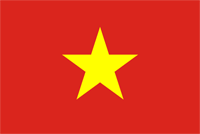 Our 2015 travels brought us back to Indonesia, Thailand, Vietnam and Turkey. All countries where we have made purchases in the past; it was nice to know our way around!
Our 2015 travels brought us back to Indonesia, Thailand, Vietnam and Turkey. All countries where we have made purchases in the past; it was nice to know our way around!
One of our favourite new finds was ‘Finest Lacquer’ in Hanoi. They produce lacquer with a very different feel and texture; the base of the product is fiberglass with a lacquered finish. The quality is very good and the material quite strong. They design everything themselves and specialize in very unique colours. They produce most of the product in their Hanoi factory and source some of the product in a local village that specializes in ceramics.
The shop is now run by Dat and her brother Hoang Anh Nguyen. With regular supervision and help of their mother. The family’s history is an incredible story that mirrors the past 60 years of Hanoi.
The business was founded 30 years ago by the mother, with the help of her 4 son’s. The father was a tailor who had gone blind and passed away. The mother started the business as a single mother when the children were very small. She learned French, Russian and German as the country moved through different phases of international visitors. Initially she started as a tailor equipment supply store, and then added one service after another to the point where now they have 4 businesses around the world.
The youngest son Hoang Anh runs the Lacquer shop with his sister Dat, the oldest son lives in London and operates an art gallery, the second son runs the factory, sadly the third son passed away, but his wife is running one of the businesses. Five years ago Mother adopted Dat and welcomed her into the family as a sister to her boys. It was obvious from how they operated together that this was a very successful business and family, they operate in both spheres very well.
We hope you will enjoy their products and consider the road they have taken to make it for us.
]]>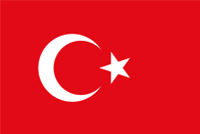 As this was our first time travelling to Turkey for business we knew it would be a bit tricky. Investigating new markets is always exciting and a bit nerve raking.
As this was our first time travelling to Turkey for business we knew it would be a bit tricky. Investigating new markets is always exciting and a bit nerve raking.
After some initial confusion with shippers and product vendors, we found our grove in the Grand Bazaar. Every country has a different way of doing business and nations that are going through rapid changes like Turkey can be especially challenging. Big factories and high volume shippers are not for us, the charm, personality and variety of the Istanbul Bazaar is timeless and suits our buying needs very well. It took us a while, but once we found a shipper that understood this, things worked out well.
We were able to source some very attractive Turkish towels, Iznik ceramics and silk scarves, among other beautiful products. Just a small sampling of the wonderful handiwork of Turkey. Of course the negotiations were interesting, fun and required copious amounts of very good tea.
We were also able to spend some time on the Turquoise coast on the Mediterranean Sea. The water colour is spectacular and the history seeps from the shoreline, as it does throughout the country. We will certainly be back to Turkey in the future, now that we have discovered how to do business there.
]]> Peggy and I had visited Morocco as tourists 20 years ago but this was our first time as buyers. Traveling as business people is certainly an interesting way to experience the Berber-Arabic culture of the Atlas Mountains.
Peggy and I had visited Morocco as tourists 20 years ago but this was our first time as buyers. Traveling as business people is certainly an interesting way to experience the Berber-Arabic culture of the Atlas Mountains.
We traveled by train from Casablanca to the ancient capitals of Fes and Marrakech, with side excursions by horse, bus and taxi to the historic coastal port of Essaouira and the Middle Atlas Kilim production centre of Azrou.
The old Medinas of these towns have a Biblical feel. Clay and stone buildings crowd the streets and alleys, causing them to twist and turn in wonderful ways. Horses and donkeys seem to be everywhere, and all the people seem to know one another. After spending just two days in one place they come to know us as well, and are quick to help. Never did we feel threatened or nervous, and were always coming across interesting sights and smells.
Moroccans have been traders and salesmen forever. Normally when we buy in South East Asia there is very little haggling, but in Morocco haggling is the national sport; if you don’t they cannot respect you! We had quite an interesting time negotiating our way through the country. Morocco was one of our most challenging and interesting countries. The people, food and amenities were wonderful, while the buying and negotiations were much more complex than normal. After all the work we are very happy with what we selected.
Where else but Morocco can you find gorgeous Berber Kilims (flat carpets), soft leather products, Berber ceramics, Arabic furniture, bone mirrors, extra-long Saharan scarves and brass/gold plates? This year they can also be found in Manotick Station, at the Third World Bazaar!
]]>
I am sitting amongst the activity of Sabana Grande’s Solar Centre, a large off-grid adobe building. Outside its open doors, looking past the glare of solar ovens, I can see La Casita Solar, an open-concept restaurant powered by biogas, solar ovens and solar panels. In between the two buildings one thousand adobe bricks dry in the sun. In a month these bricks will form a third structure for a youth centre. The Pan-American Highway roars past this rare site as green mountains roll around it. I see Latin cowboys, banana trees, and cows with huge, prehistoric horns. Walking by is a group of women with yellow and pink umbrellas for the sun. Inside this workshop, I am surrounded by five young Nicaraguans assembling nine new bicycles for rent. Between the constant slew of Nica slang (“¡si hombre!”) and the clanging of wrenches, there is being born in this village a new micro-enterprise: Bici-Futuro.
Bici-Futuro
My name is Jessie Lyon, and I am an intern for Falls Brook Centre’s international internship program. My placement landed me in Nicaragua’s rural north, a breezy, spacious place populated with small and strong communities. I work for Grupo Fenix, a Nicaraguan NGO supporting Sabana Grande as a solar community, and its associated organizations Las Mujeres Solares de Totogalpa, a twenty-woman cooperative, and Jovenes Pedaliando Hacia el Futuro (JHPF), a youth group. These three represent a combined, multi-generational effort for environmental awareness, environmental action through demonstration and local, self-sustainable employment for their community.
 With a generous sponsorship from the Third World Bazaar, Los Jovenes and I were able to purchase bicycles and all necessary parts to start a bicycle rental company for volunteers and tourists. This place breeds ambitious and clever youth, but with no budget it is difficult for them to lead financially-productive projects. The Bazaar sponsorship ignited an interesting and trendy idea these fourteen young people are excited about, and an initiative that follows the values and interests of both JPHF and the Third World Bazaar.
With a generous sponsorship from the Third World Bazaar, Los Jovenes and I were able to purchase bicycles and all necessary parts to start a bicycle rental company for volunteers and tourists. This place breeds ambitious and clever youth, but with no budget it is difficult for them to lead financially-productive projects. The Bazaar sponsorship ignited an interesting and trendy idea these fourteen young people are excited about, and an initiative that follows the values and interests of both JPHF and the Third World Bazaar.
While it is beginning to take on a life of its own, Bici-Futuro is a valuable addition to JHPF’s sustainable, rural, community tourism project and a nation-wide push to boost Nicaragua’s tourism industry. JHPF is using these bikes and Sabana Grande’s maze of back-country trails to host educational and recreational bicycle tours. Bici-Futuro offers clients day, week or month-long rentals to explore this lush, dry tropical forest. There are hints of Canada’s expansive, thick boreal forests here, until an iguana saunters by and you realize you are far from home.
Bici-Futuro
“Muchos gracias a Third World Bazaar por apoyar a la empresa de bicicletas. El grupo usara este pequeño negocio para hacerse sostenible. Bici-Futuro dirige nuestro proyecto de turismo comunitario rural.”
(Thank you very much to Third World Bazaar for supporting the bicycle business. With this sponsorship, our group can use this small business to become financially independent. Bici-Futuro is leading our community rural tourism project.)
Jennifer Perez Sanchez, Bici-Futuro Treasurer
This for-profit project compliments JPHF’s other projects, each with its own strategy to alleviate environmental problems. They host cultural soirees with traditional story-telling, music and dancing, and community movie screenings projected on white sheets in the Solar Center. They deliver presentations in local elementary schools. They produce and install bottle lights in darker homes. A popular focus is the ‘blender’ bikes and ‘generator’ bikes. A continual, two-year history has brought many different participants and ideas.
It is such a pleasure for me to witness Los Jovenes constantly changing and adapting. They took to the bicycle rental idea immediately and, while development initiatives usually experience slow and steady progress, Bici-Futuro has grown quickly in the past month. Already this project has attracted an online journal and an American entrepreneur interested in a youth exchange. International travel is certainly rare for Nicas in this area. Hosting interviews with writers and experiencing the world of business for the first time, these young people are meeting larger ideas and bigger opportunities.
It started in January 2013, when a local distributor Eduardo Diaz made the eight-hour round trip to Nicaragua’s capital Managua to purchase nine bicycles for us. JPHF member Marcel and I took a trip to the nearby city Ocotal to buy inner tubes, chain grease and all the tools necessary for repair. Currently, we are concentrating on setting prices, record-keeping, managing work hours and dealing with our first clients. With the always supportive and encouraging Cooperativa and Grupo Fenix staff, there are proposals for bike rentals being included for new volunteers and solar workshop attendees. This has become a true community-based development project. Most important, this still-new project is proving to be self-sustainable, avoiding the common development trap of dependency.
The contribution of the Third World Bazaar has created a dynamic new element to this community. Rural Nicaragua lacks employment opportunities, and though operating on a micro-level, Bici-Futuro demonstrates an example of what is possible. It offers small-time employment, but most important, it shows one way to start self-employment. Also notable is the communal nature of this new for-profit. A portion of the income is being set aside in a reserve fund for repair and maintenance while surplus profits are collected into an education account for Los Jovenes members. Approaching this community with a North American business sense, it is interesting to see my approach integrate with Nicaraguan socialist culture.
During my six-month stay here, I have watched volunteers flow through the Solar Centre with different skills and focuses. I see designs for smokeless stoves, new solar ovens, additions to the restaurant’s organic garden, solar panel installations. I see solar distillers, fruit tree orchards and solar-powered battery recharger workshops. It is so fun to facilitate a contribution from a celebrated local business from my hometown to the beginning of a local business abroad. Thank you Third World Bazaar for making it possible for one small business to help another!
Note for visitors to Nicaragua.
There is now a new inexpensive transit option in Northern Nicaragua. If you want to see this interesting, traditional and rarely visited part of the country, connect with the Los Jovenes youth group and tour the back country on their bicycles!!!
List of organizations that have been involved in the Bici-Futuro project:
- Jovenes Pedaliando Hacia el Futuro (JHPF) – Youth group running the Bici-Futuro project.
- Groupo Fenix – Nicaraguan NGO conducing economic and social development projects in Sabana Grande.
- Las Mujeres Solares de Totogalpa – Twenty-woman Cooperative conducting various solar projects in Sabana Grande .
- Falls Brook Centre – Canadian NGO that provided Jessie’s internship, and through which the Bazaar was able to send the money to Nicaragua for the Bici-Futuro project.

